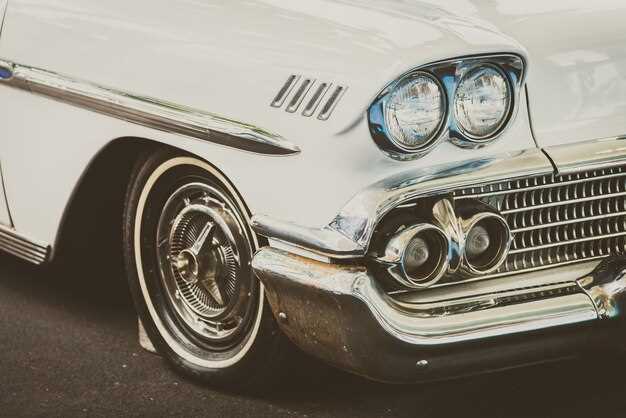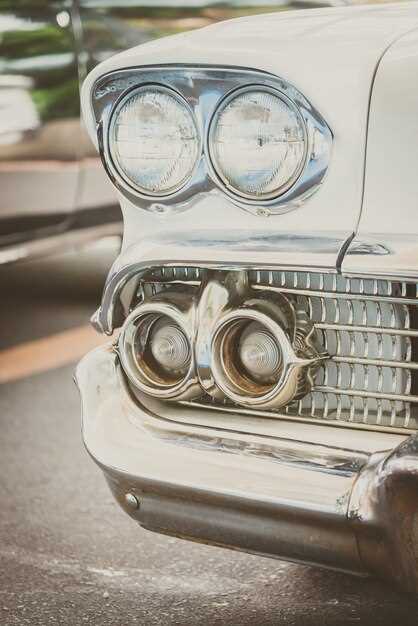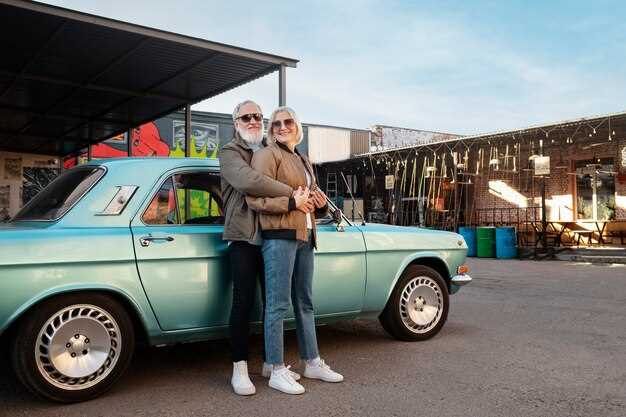
Attending your first classic car auction can be an exhilarating and daunting experience. Whether you’re a seasoned car enthusiast or a newcomer to the world of vintage automobiles, understanding the nuances of the auction process is crucial for making informed decisions. This guide will equip you with essential knowledge that can enhance your experience and help you navigate the complexities of buying a classic car at auction.
Before stepping into the auction room, it’s vital to conduct thorough research. Familiarize yourself with market trends, valuation methods, and the specific vehicles you are interested in. Knowing what makes a classic car desirable will give you a competitive edge and help you avoid overpaying. Additionally, understanding the auction format–whether it be live, online, or sealed bids–will significantly impact your strategy and engagement during the event.
Preparation goes beyond research; it also involves attending preview days to inspect the cars you’re interested in. This hands-on evaluation will allow you to assess the condition, authenticity, and history of each vehicle. Armed with this information and a clear budget in mind, you’ll be better equipped to make wise bidding choices when the auction kicks off. With these tips, your first auction experience can transform from nerve-wracking to successful.
Assessing Your Budget and Bidding Strategy
Before attending your first classic car auction, it is crucial to evaluate your budget. Determine the maximum amount you are willing to spend, not only on the vehicle but also on additional costs such as auction fees, taxes, and potential restoration expenses. Create a budget that includes the total anticipated expenditure to avoid overspending.
Estimating Total Costs involves researching similar vehicles to understand market prices. This research will help you gauge an appropriate range for your budget. Keep in mind the auction house fees, which typically range from 5% to 10% of the hammer price. Also, consider any transportation, insurance, and storage costs post-purchase.
In addition to your budget, develop a bidding strategy. Establish your bidding limits beforehand to prevent impulsive decisions during the auction. It is advisable to set a maximum bid, which should be a comfortable amount below your total budget. This cushion allows for last-minute decisions and unexpected competition.
During the auction, observe other buyers and identify their bidding patterns. Start with lower bids to gauge interest before deciding when to make your move. Avoid getting emotionally attached to a vehicle, as this can lead to overspending. Stick to your predetermined budget and strategy to ensure a more controlled and successful bidding experience.
Lastly, be prepared to walk away if the bidding exceeds your limits. Remember that many classic cars will appear at future auctions, and there will always be other opportunities. Adhering to your budget and strategy is essential for making a wise investment in your classic car adventure.
Researching Classic Cars: Knowing What to Look For

Before entering a classic car auction, comprehensive research is essential. Understanding the nuances of each vehicle can significantly influence your purchasing decision. Start by focusing on vehicle history. Investigate previous owners, accident reports, and service records. Platforms like Carfax and AutoCheck can provide vital information about a car’s past.
Next, familiarize yourself with market values. Use resources such as auction results, classic car magazines, and online marketplaces to gauge typical prices for the models you’re interested in. This knowledge will help you avoid overpaying and give you leverage during the bidding process.
Mechanical condition is another critical aspect to investigate. Look for common issues that affect specific car models, such as rust on body panels, engine problems, or transmission concerns. If possible, arrange for a pre-purchase inspection by a trusted mechanic who specializes in classic cars. Their expertise can reveal hidden problems that could lead to costly repairs.
Authenticity and originality are paramount. Many collectors value vehicles with original parts, as restorations can diminish their worth. Verify numbers on the engine and chassis against factory records to ensure that the car is as advertised. Be aware of any modifications that may affect its historical value.
Lastly, be knowledgeable about emotional appeal. Classic cars often evoke nostalgia and personal connections. While this can enhance your desire for a particular model, ensure that your love for a car doesn’t cloud your judgment regarding its financial viability.
Preparing for the Auction Day: What to Bring and Expect

On auction day, being well-prepared can make a significant difference in your experience and potential success. First and foremost, make sure to bring a valid form of identification, such as a driver’s license or passport, as it will be required for registration purposes. Some auctions may also require a credit card for bidding, so it’s wise to have that handy as well.
Next, consider bringing a copy of your research notes on classic cars and specific lots that interest you. This can help you remember key details and assist in making informed bidding decisions. Additionally, a notepad or digital device can be useful for jotting down any last-minute observations or updates about the cars on the day of the auction.
It’s also advantageous to have pre-approved financing, particularly if you’re planning to bid on higher-value vehicles. Bring any necessary documentation proving your funding options, which can expedite the bidding process. If you’re a first-time bidder, familiarize yourself with the auction terms and conditions, as each auction house may have unique rules and procedures.
Alongside financial preparation, consider attending any preview events prior to the auction. This allows you to inspect vehicles physically and assess their condition, which can aid in your bidding strategy. If you are shipping a vehicle after winning, ensure you have the details of your shipping service on hand, including contact information and scheduling.
Lastly, keep in mind the atmosphere of the auction environment. Expect a lively, competitive setting where emotions can run high. Go in with a clear budget and a focus on your top choices to avoid impulse bidding. Have fun, but stay grounded in your objectives, and you will maximize your auction experience.
